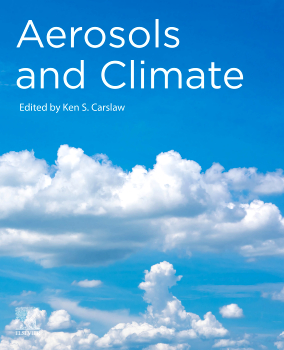Making sense of multi-model spread in climate projections: Aerosols, clouds and perturbed parameter ensembles
Summary of the general research area:
A central challenge in climate science is turning advances in process-level understanding into models that can more reliably simulate future climate. Despite major progress in model complexity and an ever-growing number of observational datasets, model uncertainty – characterized by the spread of future climate projections, hasn’t narrowed for several decades. This persistent uncertainty stems primarily from uncertainty related to the cooling influence of aerosol radiative forcing, which has historically masked part of the greenhouse gas driven warming. Steady advances in aerosol physics and our understanding of how aerosols interact with clouds and radiation have not yet been converted into reductions in model uncertainty.
Opportunity:
In this PhD, you will evaluate how current-generation climate models differ in their causes of uncertainty associated with aerosol radiative forcing – a key factor influencing future climate projections. You will work with our team and collaborators at the UK Met Office, applying a framework we have developed for creating and analysing large ensembles of model simulations– known as perturbed parameter ensembles (PPEs). PPEs systematically explore a wide range of model uncertainties, providing insights that are not possible from usual approaches to climate modelling.
With several international institutions now implementing large PPEs, this project presets a unique opportunity to explore multi-model PPEs (MM-PPEs) and identify the underlying reasons for the persistent spread in future climate projections. By analysing how physical processes are represented in different versions of the UK climate model (multi-version PPEs) and comparing these with other models, you will help pinpoint priority areas of model development.
PPEs provide the only way to cleanly separate structural uncertainty (related to how the model structure, equations, resolution, etc.) from parametric uncertainty (related to values assigned to parameters in the equations). These two forms of uncertainty are the main causes of spread in climate projections. This PhD offers the chance to develop a deeper understanding of how MM-PPEs can be used to separate structural and parametric uncertainties. Achieving this may involve developing new methods, such as machine learning approaches tailored to output from structurally diverse models. By disentangling these sources of climate projection spread, your research could provide a clearer picture of why models diverge and may help us develop strategies to constrain the spread in climate projections.
Broader impact:
Understanding the role of aerosols and clouds in shaping Earth’s climate is one of the most urgent questions in climate science. By reducing uncertainties in future climate projections, this project will contribute to more reliable information for policymakers, planners, and communities worldwide as they prepare for the impacts of climate change.
About the supervisory team and environment:
You will be supervised by Dr Leighton Regayre and Prof Ken Carslaw, who have an excellent track record training PhD students and postdoctoral researchers to develop novel approaches to evaluating and developing climate models. Both supervisors are internationally recognised leaders in aerosol-cloud-climate interaction research, with extensive experience in model development, large-ensemble design, and the integration of advanced data science techniques. Former students have gone on to successful careers in academia, national meteorological services, climate policy, and data science industries.
The project will be based in the Aerosol and Cloud Research Group at the University of Leeds, one of the world’s leading centres for atmospheric and climate science. The group is part of the School of Earth and Environment, which has consistently been ranked among the top global departments for environmental and Earth sciences. Within this vibrant research community, you will interact with experts in climate modelling, atmospheric physics, aerosol-cloud processes and innovative applications of machine learning and statistical inference.

You will benefit from a stimulating interdisciplinary environment, with strong connections to the UK Met Office and international partners in Europe and the United States. These collaborations create opportunities for joint training, research visits, and the potential to contribute to multi-institutional modelling efforts. The University of Leeds also provides excellent research infrastructure, including high-performance computing facilities and access to large climate datasets, ensuring that you will have the tools and support needed to make rapid progress.
The group prides itself on its supportive and inclusive culture, with regular seminars, coding workshops, and peer-learning activities. As a PhD researcher, you will be part of a lively cohort of students and early-career scientists, giving you both academic mentorship and a strong sense of community as you pursue your doctoral research.
Applicant profile:
Our experience shows that motivated STEM student with a genuine interest in climate modelling can rapidly develop the skills needed to excel in this field of research. Although the approach draws on advanced methods in data science and machine learning, students typically find that with guidance and curiosity they quickly acquire the necessary expertise to make important insights and make meaningful contributions to understanding how aerosols and clouds shape our future climate. If you are eager to push the boundaries of knowledge, whilst acquiring highly transferable skills, reach out to our group members to find out more.
- Essential: Strong background in a STEM discipline (e.g. physics, mathematics, computer science, engineering, environmental science)
- Desirable: Experience with coding (e.g. Python, R, or similar), data analysis, or climate/environmental science
- Desirable: Enthusiasm for working across disciplines and learning new methods



